
Leiden: The Charming Heart of Dutch Heritage
Leiden is a picturesque city in the Netherlands, known for its rich history, stunning canals, and vibrant academic atmosphere. As the birthplace of Rembrandt, this city offers a captivating blend of culture and art. Wander through its cobblestone streets and discover an array of museums, including the National Museum of Antiquities and the Museum of the History of Science. The city's centuries-old buildings and quaint bridges create a timeless charm that is sure to enchant any visitor. Leiden is home to one of the oldest universities in Europe, Leiden University, which was founded in 1575. The university's botanical garden, Hortus Botanicus, is a serene oasis in the heart of the city and a must-visit for nature lovers. The garden features a diverse collection of plants and flowers, including some rare species. The city's academic vibe is complemented by its lively cafe culture, where you can sip a coffee by the canal or enjoy a meal at one of the many outdoor terraces. Leiden's vibrant events calendar ensures there's always something to do. The annual Leiden International Film Festival and the Leiden Marathon are just a few highlights. The city's central location also makes it an ideal base for exploring the Dutch countryside and nearby cities like Amsterdam, The Hague, and Rotterdam. Whether you're interested in history, art, or simply soaking in the local atmosphere, Leiden offers a unique and memorable experience for every traveler.
Local tips in Leiden
- Visit the Hortus Botanicus early in the morning to avoid crowds and enjoy a peaceful stroll.
- Take a boat tour through Leiden's canals for a unique perspective of the city.
- Check out the market on Wednesdays and Saturdays at the Nieuwe Rijn for fresh produce and local delicacies.
- Leiden is very bike-friendly. Consider renting a bicycle to explore the city and its surroundings.
- Don't miss the Burcht van Leiden, an ancient fort offering panoramic views of the city.
Leiden: The Charming Heart of Dutch Heritage
Leiden is a picturesque city in the Netherlands, known for its rich history, stunning canals, and vibrant academic atmosphere. As the birthplace of Rembrandt, this city offers a captivating blend of culture and art. Wander through its cobblestone streets and discover an array of museums, including the National Museum of Antiquities and the Museum of the History of Science. The city's centuries-old buildings and quaint bridges create a timeless charm that is sure to enchant any visitor. Leiden is home to one of the oldest universities in Europe, Leiden University, which was founded in 1575. The university's botanical garden, Hortus Botanicus, is a serene oasis in the heart of the city and a must-visit for nature lovers. The garden features a diverse collection of plants and flowers, including some rare species. The city's academic vibe is complemented by its lively cafe culture, where you can sip a coffee by the canal or enjoy a meal at one of the many outdoor terraces. Leiden's vibrant events calendar ensures there's always something to do. The annual Leiden International Film Festival and the Leiden Marathon are just a few highlights. The city's central location also makes it an ideal base for exploring the Dutch countryside and nearby cities like Amsterdam, The Hague, and Rotterdam. Whether you're interested in history, art, or simply soaking in the local atmosphere, Leiden offers a unique and memorable experience for every traveler.
When is the best time to go to Leiden?
Iconic landmarks you can’t miss
Burcht van Leiden
Explore the Burcht van Leiden, a medieval fortress that offers stunning views and a deep dive into the rich history of this charming Dutch city.
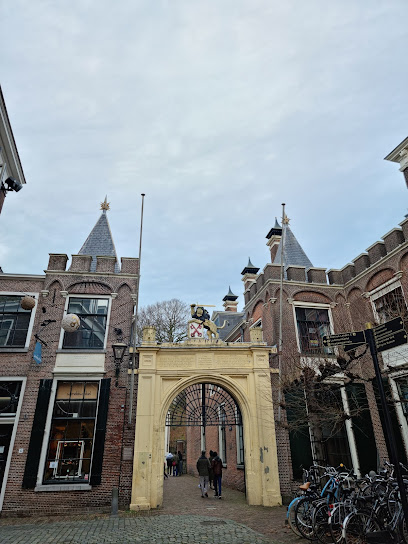
National Museum of Ethnology
Explore a world of cultures at the National Museum of Ethnology in Leiden, showcasing diverse artifacts and stories that connect humanity.
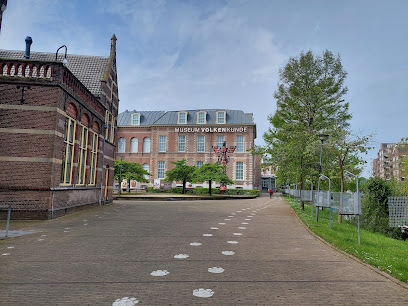
Museum De Lakenhal
Discover the artistic heritage of Leiden at Museum De Lakenhal, showcasing a blend of historical and contemporary art in a stunning setting.
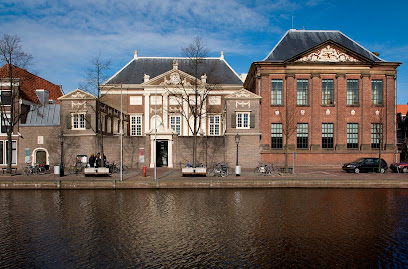
Pieterskerk, Leiden
Discover the historical wonders of Pieterskerk, a stunning Gothic landmark in Leiden, offering rich culture and breathtaking architecture.
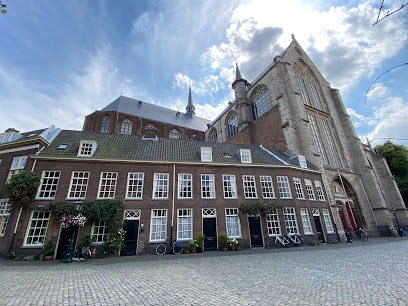
Leidse Hout
Explore Leidse Hout, a serene park in Leiden, filled with lush landscapes, wildlife, and the perfect ambiance for relaxation and recreation.
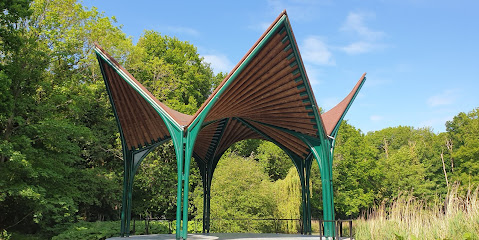
Molen De Valk
Explore the historic Molen De Valk in Leiden, a unique windmill museum showcasing Dutch culture and offering breathtaking views of the city.
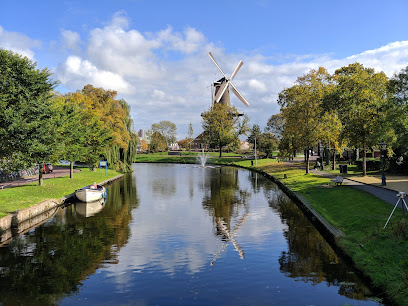
Hooglandse Kerk
Discover the architectural beauty and historical significance of Hooglandse Kerk, a must-visit Protestant church in the heart of Leiden, Netherlands.
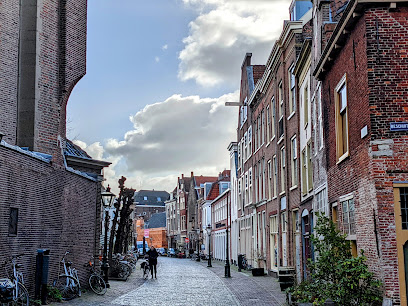
Scheltema Leiden
Discover the cultural heart of Leiden at Scheltema, a historic venue for concerts, theater, and vibrant community events.
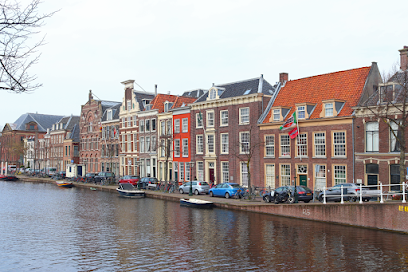
Morschpoort
Discover Morschpoort, a stunning historical landmark in Leiden, where rich history and architectural beauty come together in a captivating experience.
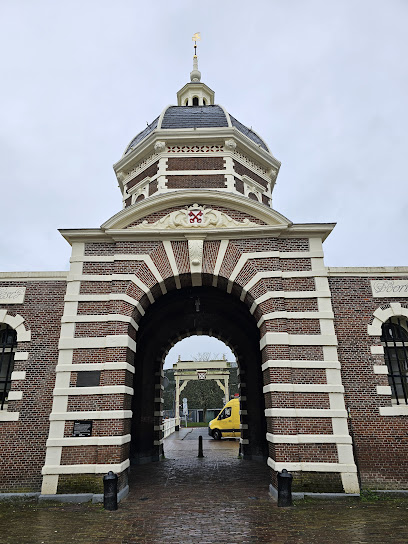
Oude Sterrewacht (Old Observatory Leiden)
Discover the historical significance and astronomical wonders of the Oude Sterrewacht in Leiden, a must-visit for science enthusiasts and history lovers alike.
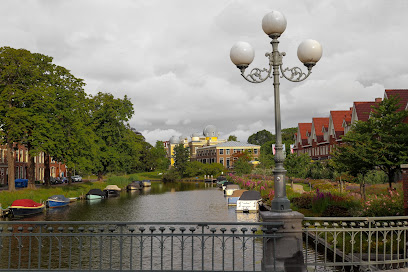
Boat Tours Rembrandt B.V.
Explore the beauty of Leiden's canals and historic landmarks with Boat Tours Rembrandt B.V. for an unforgettable aquatic adventure.
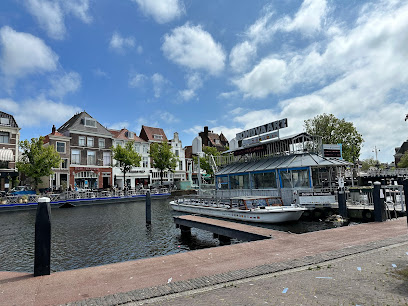
Hartebrugkerk
Experience the majestic Hartebrugkerk in Leiden, a blend of spiritual tranquility and stunning architecture, perfect for your travel itinerary.
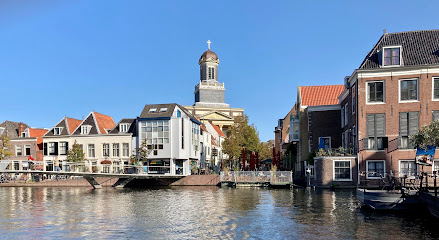
Escape Room Leiden
Experience the ultimate thrill at Escape Room Leiden, where teamwork and creativity unlock unforgettable adventures in a captivating environment.
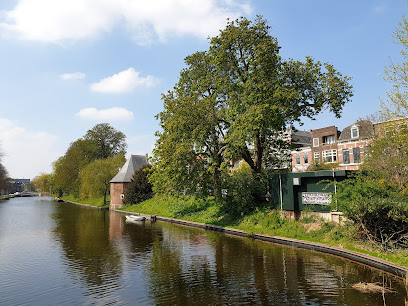
Young Rembrandt Studio
Discover the early life of Rembrandt van Rijn at Young Rembrandt Studio in Leiden, a museum dedicated to the master’s formative years and artistic journey.
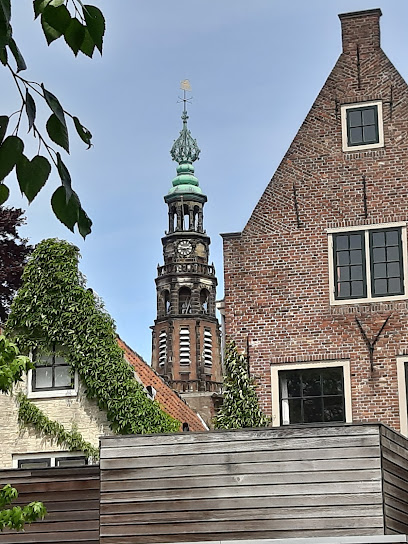
Koornbrug
Discover the historic beauty of Koornbrug in Leiden, an iconic bridge steeped in charm and rich cultural heritage.
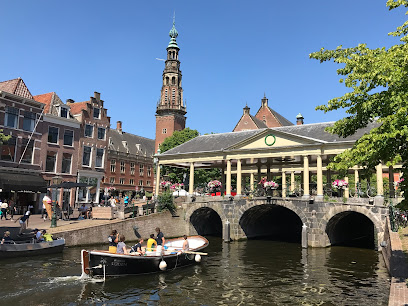
Unmissable attractions to see
Rijksmuseum
Explore the treasures of Dutch art and history at the Rijksmuseum, home to masterpieces and rich cultural heritage.
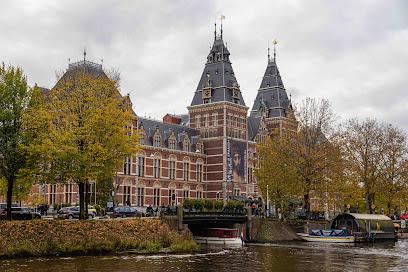
Van Gogh Museum
Discover the world's largest collection of Vincent van Gogh's masterpieces at the Van Gogh Museum in Amsterdam, a must-see for art lovers and tourists.
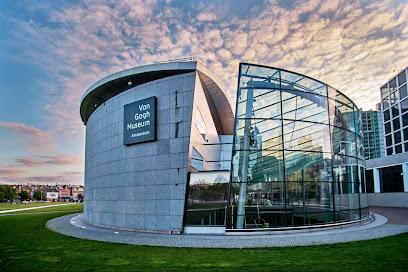
Anne Frank House
Explore the Anne Frank House in Amsterdam: a poignant museum dedicated to the life and legacy of Anne Frank during World War II.
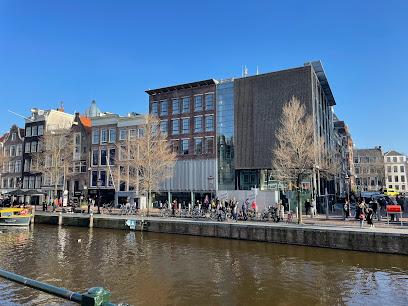
Keukenhof
Discover the breathtaking beauty of Keukenhof, the world's largest flower garden, where vibrant tulip displays and stunning landscapes await every spring.
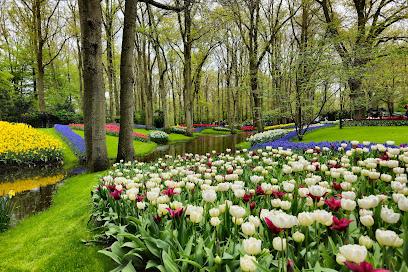
Vondelpark
Discover Vondelpark, Amsterdam's premier green space, offering a blend of nature, art, and culture in the heart of the city.
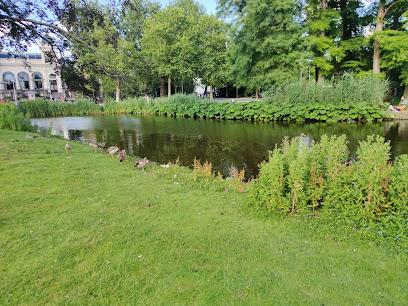
Dam Square
Explore Dam Square, a historic landmark in Amsterdam, featuring stunning architecture, vibrant street life, and a rich cultural heritage.
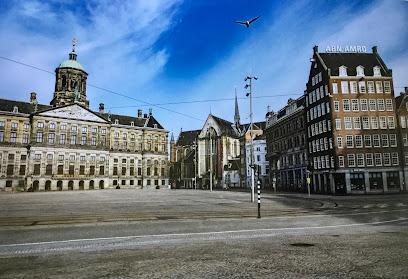
De Pier
Discover De Pier in Scheveningen for breathtaking ocean views, delightful dining, and an array of entertainment options at this iconic seaside destination.
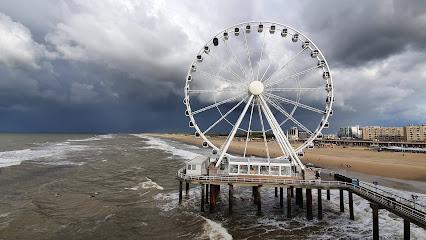
Rotterdam Zoo
Explore the enchanting Rotterdam Zoo, a conservation-focused sanctuary home to diverse wildlife and immersive experiences for all ages.
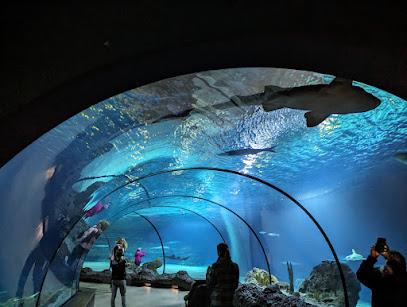
Johan Cruyff Arena
Experience the thrill of Dutch football at Johan Cruyff Arena, home of Ajax Amsterdam, where sports and culture unite in a spectacular setting.
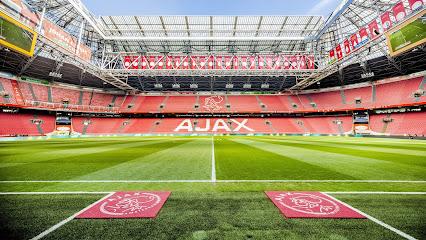
ARTIS
Discover ARTIS, Amsterdam's historic zoo featuring diverse wildlife, an aquarium, and lush park areas for an unforgettable day in the city.

NEMO Science Museum
Explore the interactive exhibits and breathtaking views at NEMO Science Museum in Amsterdam, a must-visit for science lovers and families alike.
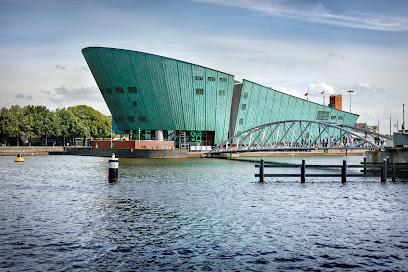
Madame Tussauds Amsterdam
Discover the star-studded world of Madame Tussauds Amsterdam, where you can meet your favorite celebrities in stunning wax form.
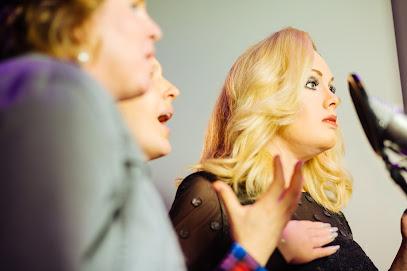
Madurodam
Discover the Netherlands in miniature at Madurodam, where iconic landmarks and cultural heritage come to life in The Hague.
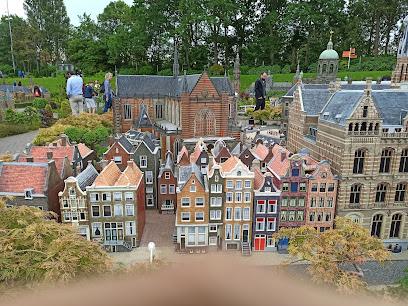
A'DAM Lookout
Experience breathtaking views and thrilling adventures at A'DAM Lookout, Amsterdam's must-visit observation deck and attraction.
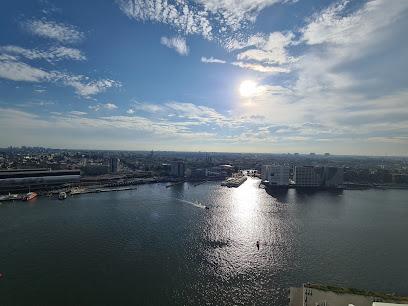
Royal Palace Amsterdam
Discover the Royal Palace Amsterdam, a stunning blend of history and architecture in the heart of the city, showcasing the opulence of Dutch royalty.
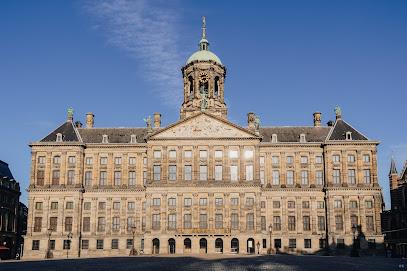
Essential places to dine
WAAG
Experience culinary delights at WAAG, a vibrant restaurant and bar in the heart of Leiden offering traditional Dutch flavors and modern cuisine.
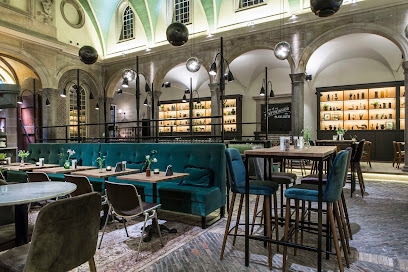
Stadscafé Van der Werff
Discover authentic Dutch cuisine at Stadscafé Van der Werff in Leiden - where tradition meets vibrant atmosphere.
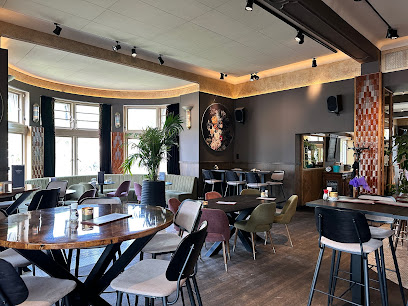
Very Italian Pizza Leiden
Experience authentic Italian cuisine at Very Italian Pizza in Leiden, where delicious flavors meet a cozy atmosphere.
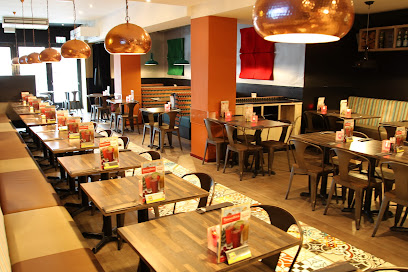
Einstein Leiden
Discover Einstein Leiden: A culinary gem offering delightful meals and drinks in a charming setting by the picturesque Nieuwe Rijn.
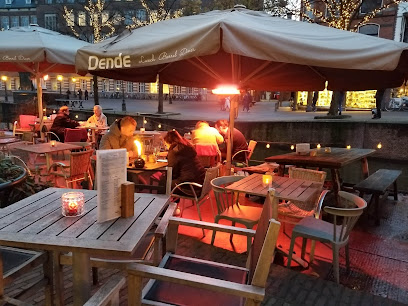
Annie's
Discover Annie's in Leiden: A delightful restaurant offering seasonal dishes and a warm ambiance for every occasion.
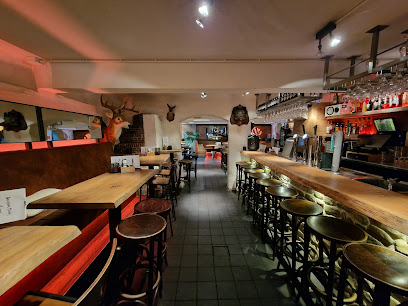
Lot & de Walvis
Discover Lot & de Walvis: A waterfront restaurant in Leiden offering exquisite local and international cuisine in a charming setting.
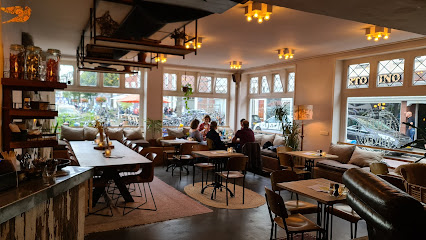
Paco Ciao
Discover the delightful culinary offerings at Paco Ciao in Leiden - where breakfast meets creativity and flavor.
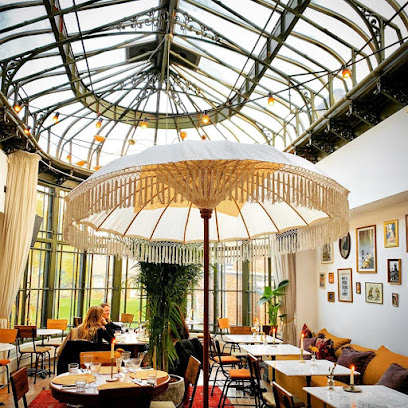
Trattoria Italiana City Hall
Experience authentic Italian cuisine at Trattoria Italiana City Hall in Leiden – where delicious food meets charming ambiance.
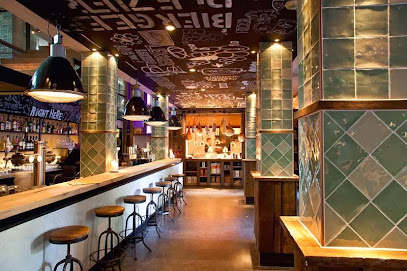
El Gaucho
Discover authentic Argentinian flavors at El Gaucho in Leiden - where every meal is a celebration of taste and tradition.
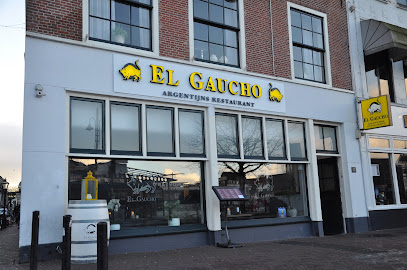
Tabú
Discover authentic Latin American cuisine at Tabú in Leiden – where every bite tells a flavorful story.
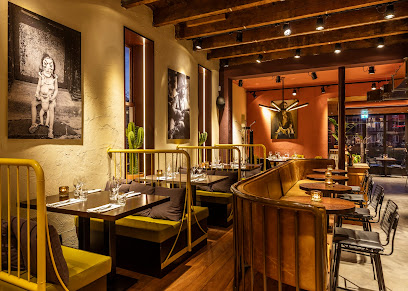
Just Meet
Experience unparalleled steak delights at Just Meet in Leiden – where culinary passion meets exquisite flavors.
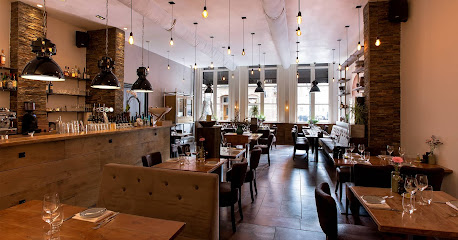
Rodos Good Taste Restaurant
Experience authentic Greek flavors at Rodos Good Taste Restaurant in Leiden - a must-visit destination for food lovers seeking Mediterranean delights.
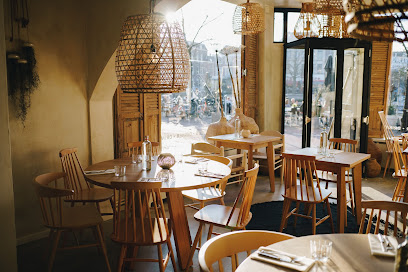
Pakhuis Leiden
Discover Pakhuis Leiden - A delightful restaurant offering diverse cuisine amidst a charming atmosphere in the heart of historic Leiden.
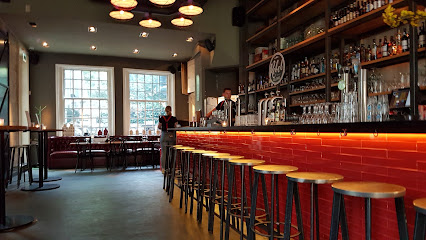
Verboden Toegang Restaurant Artikel 461
Experience authentic Dutch cuisine at Verboden Toegang Restaurant in Leiden - where original flavors meet exceptional service.
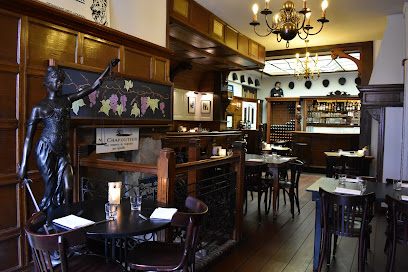
De Stadthouder
Experience delightful dining at De Stadthouder in Leiden with exquisite tapas, refreshing cocktails, and exceptional service.
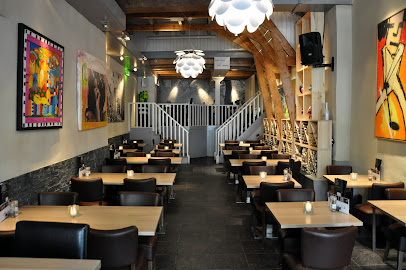
Markets, malls and hidden boutiques
Dille & Kamille - Leiden
Explore Dille & Kamille in Leiden for unique gifts, home goods, and charming souvenirs that capture the essence of Dutch design.
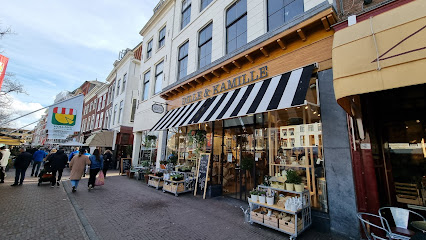
Flying Tiger Copenhagen
Explore Flying Tiger Copenhagen in Leiden - a whimsical gift shop filled with unique home goods, toys, and creative treasures for all ages.
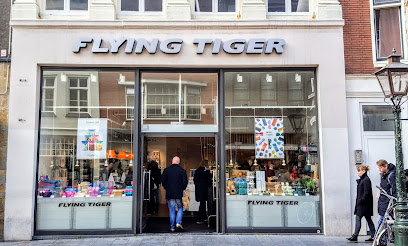
VNTG
Explore the eclectic world of vintage fashion at VNTG in Leiden, where every piece tells a unique story and adds charm to your wardrobe.
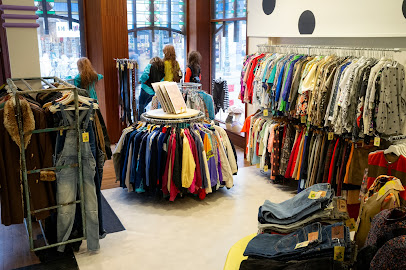
Vintage Island
Explore Vintage Island in Leiden, where timeless fashion and unique treasures await every vintage enthusiast.
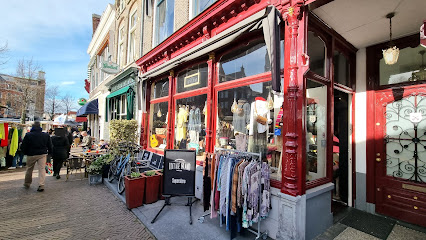
Exclusivithee
Discover the serene charm of Exclusivithee, Leiden's premier tea store, offering exquisite flavors and a cozy atmosphere for tea lovers.
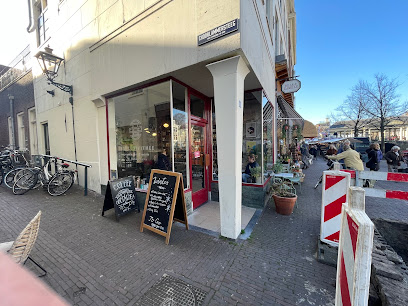
EDUARD Leiden
Explore the enchanting world of EDUARD Leiden, where unique gifts, stylish bags, and handcrafted jewelry await in the heart of Leiden.
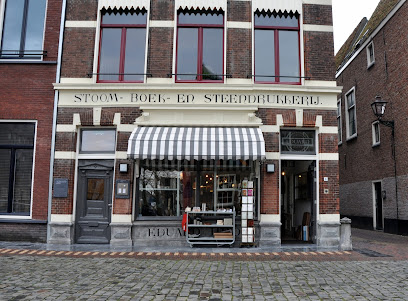
Olive Oyl's Rusty Zipper
Explore Olive Oyl's Rusty Zipper in Leiden for vintage treasures and sustainable fashion, a unique shopping experience that celebrates individuality.
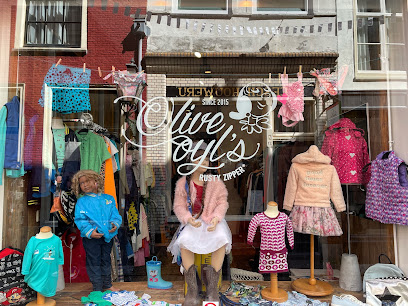
Swan Market Store Leiden
Explore the vibrant Swan Market Store in Leiden for a unique shopping experience filled with artisanal crafts, gourmet treats, and local culture.
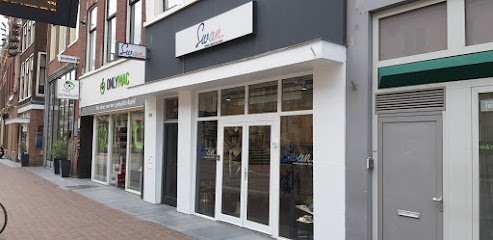
Hartendief
Explore Hartendief, Leiden's unique vintage clothing store, where every piece tells a story and sustainability meets style.
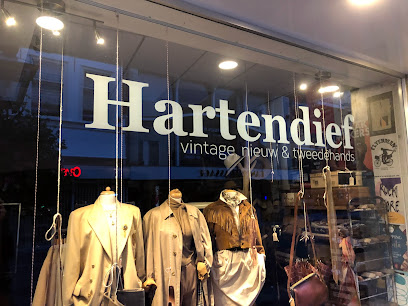
Leiden Made
Discover unique gifts and locally crafted treasures at Leiden Made, the heart of Leiden's artisan community.
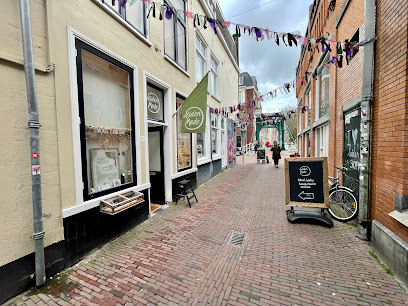
Kleurrijk Geluk
Discover the vibrant charm of Kleurrijk Geluk, a captivating gift shop in Leiden, offering unique treasures that celebrate Dutch culture.
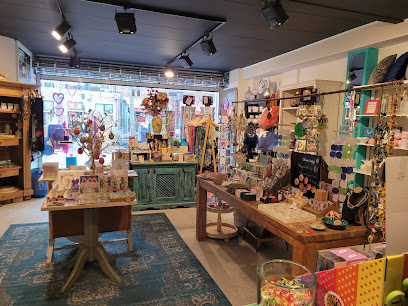
De Winkel in Leiden
Explore the charm of De Winkel in Leiden, where unique gifts and home goods await, reflecting the artistry of local craftsmanship.
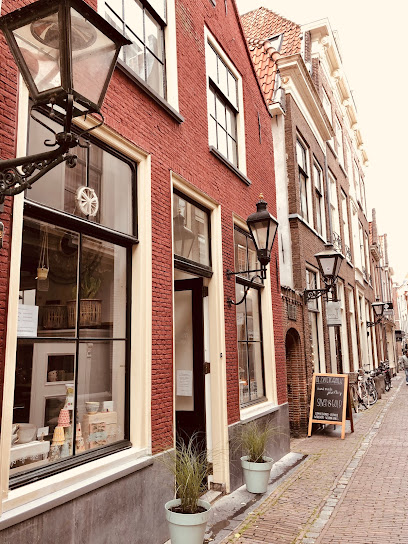
House of items
Explore the House of Items in Leiden for unique gifts and fashion accessories that celebrate global craftsmanship and creativity.
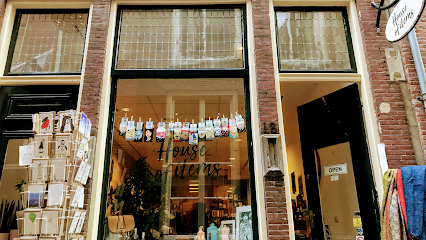
Modejacht Vintage
Explore Modejacht Vintage in Leiden for unique, curated vintage clothing and accessories that tell a story of timeless fashion.
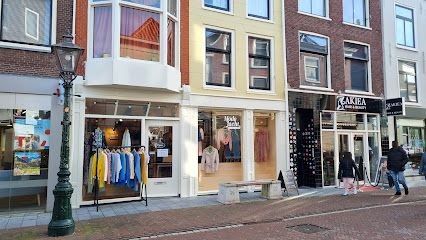
Naturalis Museum Shop
Explore the Naturalis Museum Shop for unique gifts that celebrate natural history and biodiversity in the heart of Leiden.
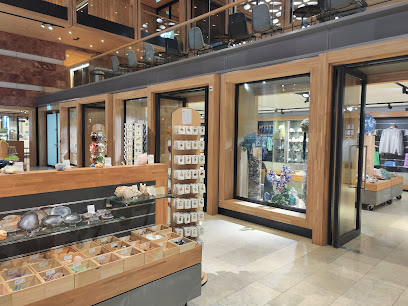
Essential bars & hidden hideouts
North End
Enjoy a true Dutch pub experience at North End Pub in Leiden, with vibrant atmosphere, delicious food, and a wide selection of drinks.
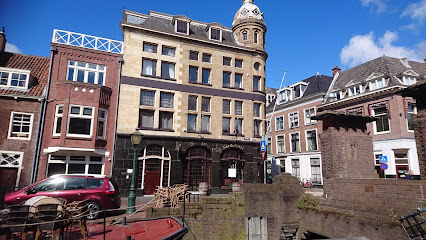
Lemmy's Beer and Whiskycafé
Experience the best beers and whiskies in Leiden at Lemmy's Beer and Whiskycafé, a cozy spot perfect for relaxation and socializing.
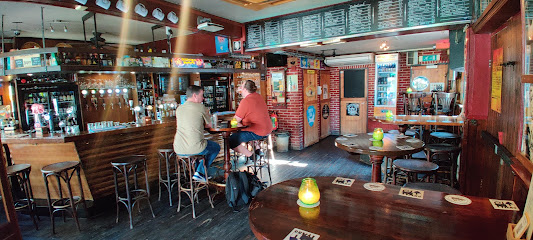
The Duke of Oz
Experience the vibrant atmosphere of The Duke of Oz, Leiden's top sports bar, featuring live games, a wide drink selection, and a lively crowd.
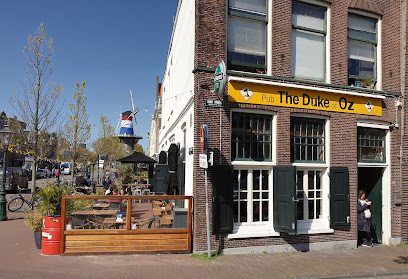
Bar Lokaal
Discover the vibrant culinary scene at Bar Lokaal, Leiden's bistro that combines local flavors with a cozy atmosphere.
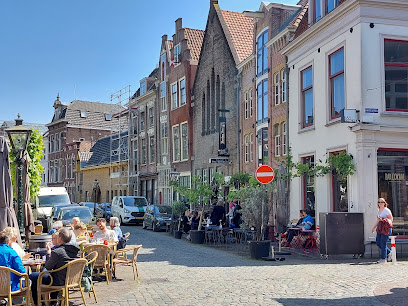
De Bonte Koe
Experience the vibrant atmosphere of De Bonte Koe, a charming bar and café in Leiden, offering delicious drinks and delightful light bites.
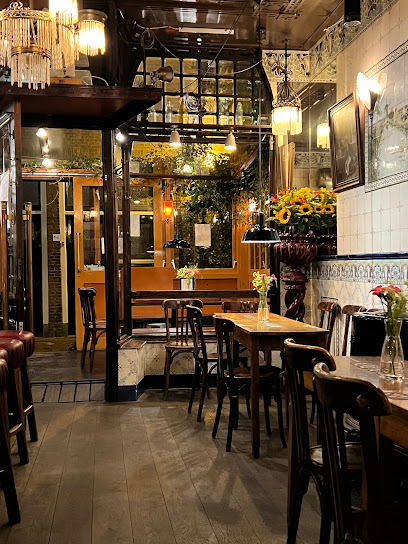
De Twee Spieghels
Experience the enchanting fusion of live jazz and fine wines at De Twee Spieghels, a must-visit bar in the heart of Leiden.
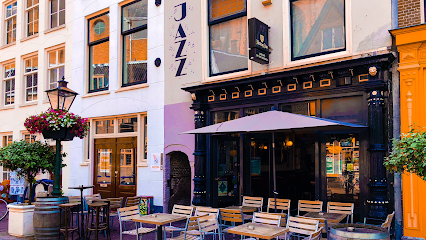
Café De Uyl van Hoogland
Experience the warmth and charm of Café De Uyl van Hoogland, a delightful bar in Leiden offering refreshing drinks and light bites in a cozy atmosphere.
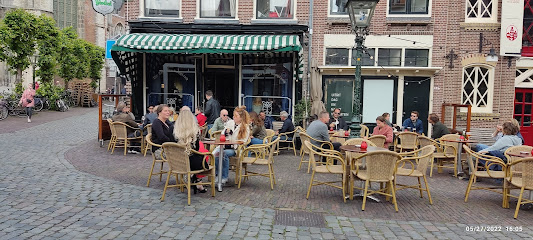
Mister Jansen
Explore the charm of Leiden at Mister Jansen, a cozy pub offering a delightful selection of drinks and local snacks in a friendly atmosphere.
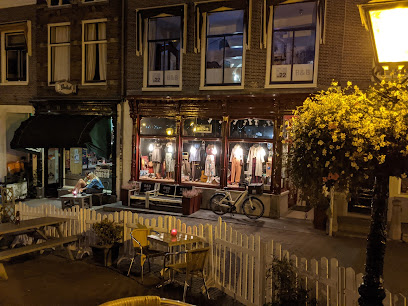
Rock café Lazarus
Experience the lively atmosphere of Rock Café Lazarus in Leiden, an iconic pub known for its live music, vibrant drinks, and welcoming ambiance.
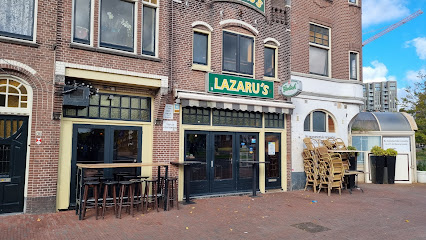
Restaurant Proeflokaal 1574
Discover exquisite wines and culinary delights at Restaurant Proeflokaal 1574 in Leiden, a must-visit destination for wine enthusiasts.
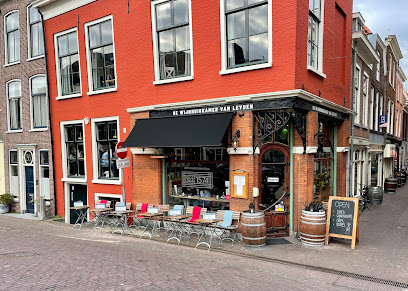
Café 't Praethuys
Discover the charm of Café 't Praethuys, a cozy pub in Leiden offering local brews and a welcoming atmosphere for all visitors.
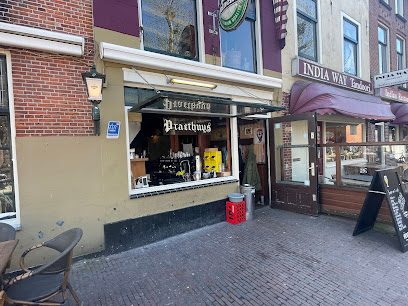
Jeanpagne Bistro & Wijnbar
Discover the perfect blend of bistro dining and wine tasting at Jeanpagne Bistro & Wijnbar in Leiden, a culinary gem for every traveler.
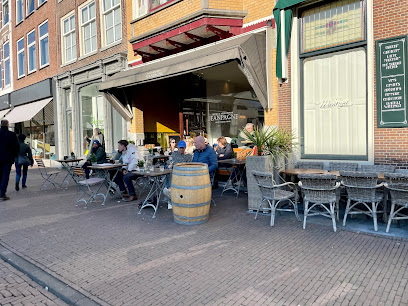
Bel Air Diner
Discover Bel Air Diner in Leiden: a vibrant tapas and karaoke bar offering exquisite flavors and a lively atmosphere for an unforgettable night out.
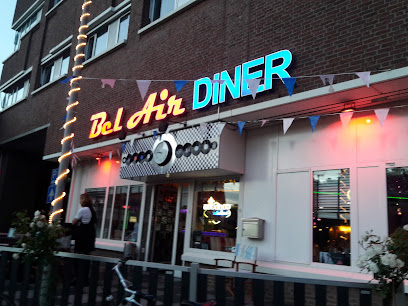
Scott's Tavern
Discover the charm of Scott's Tavern in Leiden, a cozy pub offering delicious food and an extensive drink selection in a vibrant atmosphere.
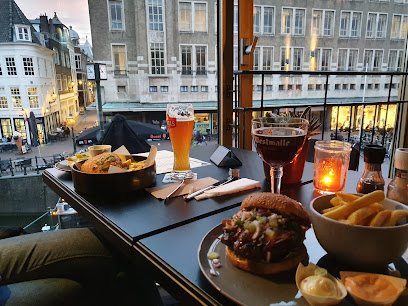
Travel experiences inspired by this city
Explore more travel diariesLocal Phrases
-
- HelloHallo
[HAH-loh] - GoodbyeTot ziens
[tot zeens] - YesJa
[yah] - NoNee
[nay] - Please/You're welcomeAlsjeblieft
[als-yuh-bleeft] - Thank youDank je wel
[dahnk yuh vel] - Excuse me/SorrySorry
[soh-ree] - How are you?Hoe gaat het?
[hoo gah-t het] - Fine. And you?Goed. En met jou?
[khoot. en met yow] - Do you speak English?Spreek je Engels?
[sprake yuh eng-els] - I don't understandIk begrijp het niet
[ick buh-grayp het neet]
- HelloHallo
-
- I'd like to see the menu, pleaseIk wil graag de menukaart zien, alsjeblieft
[ick vil khraahg duh meh-noo-kart seen, als-yuh-bleeft] - I don't eat meatIk eet geen vlees
[ick ayt khayn vlays] - Cheers!Proost!
[prohst] - I would like to pay, pleaseIk wil graag betalen, alsjeblieft
[ick vil khraahg buh-tah-lun, als-yuh-bleeft]
- I'd like to see the menu, pleaseIk wil graag de menukaart zien, alsjeblieft
-
- Help!Help!
[help] - Go away!Ga weg!
[ga wegh] - Call the Police!Bel de politie!
[bel duh poh-lee-tee] - Call a doctor!Bel een dokter!
[bel uhn dohk-tur] - I'm lostIk ben verdwaald
[ick ben vuhr-dwahlt] - I'm illIk ben ziek
[ick ben zeek]
- Help!Help!
-
- I'd like to buy...Ik wil graag kopen...
[ick vil khraahg khoh-pun] - I'm just lookingIk kijk alleen maar
[ick kayk a-layn mahr] - How much is it?Hoeveel kost het?
[hoo-vel kost het] - That's too expensiveDat is te duur
[daht is tuh dur] - Can you lower the price?Kunt u de prijs verlagen?
[kunt yoo duh prees vur-lah-ghun]
- I'd like to buy...Ik wil graag kopen...
-
- What time is it?Hoe laat is het?
[hoo laht is het] - It's one o'clockHet is een uur
[het is uhn oor] - Half past (10)Half elf
[hahlf elf] - MorningOchtend
[ohk-tund] - AfternoonMiddag
[mee-dahkh] - EveningAvond
[ah-vohnt] - YesterdayGisteren
[khiss-tur-un] - TodayVandaag
[vahn-dahkh] - TomorrowMorgen
[mohr-khun] - 1Een
[uhn] - 2Twee
[tway] - 3Drie
[dree] - 4Vier
[feer] - 5Vijf
[fayf] - 6Zes
[zehs] - 7Zeven
[zay-vun] - 8Acht
[ahkh-t] - 9Negen
[nay-khun] - 10Tien
[teen]
- What time is it?Hoe laat is het?
-
- Where's a/the...?Waar is een/de...?
[vahr is uhn/de] - What's the address?Wat is het adres?
[vaht is het ah-dres] - Can you show me (on the map)?Kunt u me laten zien (op de kaart)?
[kunt yoo meh lah-tun zeen (op deh kart)] - When's the next (bus)?Wanneer is de volgende (bus)?
[vahn-ur is duh vohl-hun-duh (bus)] - A ticket (to ....)Een kaartje (naar ....)
[uhn kahrt-yuh (nar)]
- Where's a/the...?Waar is een/de...?
History of Leiden
-
Leiden, situated in the Dutch province of South Holland, began as a settlement on the banks of the Old Rhine. The earliest known written record of Leiden dates back to 860 AD, when it was referred to as 'Leithon.' The strategic location by the river allowed the town to flourish as a hub for trade and commerce.
-
One of the most pivotal events in Leiden's history was the Siege of Leiden during the Eighty Years' War. The city was besieged by Spanish forces in an attempt to suppress the Dutch Revolt. After a grueling four-month siege, the citizens of Leiden were on the brink of starvation. However, the siege was broken on October 3, 1574, when Dutch forces flooded the surrounding land, forcing the Spanish to retreat. The relief of Leiden is celebrated annually on October 3rd, known as 'Leidens Ontzet.'
-
In 1575, in gratitude for the city's resistance during the siege, William of Orange founded Leiden University. It became the first university in the Netherlands and quickly grew into a prestigious institution. The university attracted scholars from all over Europe, including the likes of René Descartes and Albert Einstein, and played a significant role in the Dutch Golden Age of science and culture.
-
Leiden holds a special place in the history of the Pilgrims, the English separatists who later sailed to America on the Mayflower. Fleeing religious persecution in England, the Pilgrims found refuge in Leiden in 1609. They lived and worshipped in the city for over a decade before embarking on their historic journey to the New World in 1620.
-
The 17th century was a period of immense prosperity for Leiden, as it became a center for the textile industry. The city's economic success was driven by the production of high-quality woolen cloth, which was exported across Europe. Leiden's wealth contributed to a flourishing of the arts and sciences, solidifying its reputation as a cultural and intellectual hub.
-
Leiden's intricate canal system is a testament to Dutch engineering prowess. The canals were developed extensively during the 17th century to facilitate trade and manage water levels. Today, they remain a defining feature of the city's landscape, offering picturesque views and a unique way to explore Leiden by boat.
-
Named after the renowned Dutch physician Herman Boerhaave, the Boerhaave Museum in Leiden is dedicated to the history of science and medicine. Established in 1931, the museum houses an extensive collection of scientific instruments, medical artifacts, and rare books, reflecting Leiden's rich legacy in scientific discovery and innovation.
-
The Leiden American Pilgrim Museum, located in a 14th-century building, offers a fascinating glimpse into the lives of the Pilgrims during their time in Leiden. The museum features period furnishings, artifacts, and exhibits that tell the story of the Pilgrims' stay in the city and their journey to America.
-
The National Museum of Antiquities, or Rijksmuseum van Oudheden, is a premier archaeological museum in Leiden. Founded in 1818, it boasts an impressive collection of artifacts from ancient Egypt, the Near East, Greece, and Rome. The museum serves as a center for archaeological research and education, attracting scholars and visitors from around the world.
-
Founded in 1590, the Hortus Botanicus Leiden is one of the oldest botanical gardens in the world. It was established by the university for the study of medicinal plants and quickly became a center for botanical research. The garden features a diverse collection of plants from around the globe, including the first European tulip bulbs, which played a key role in the Dutch tulip mania of the 17th century.
Leiden Essentials
-
Leiden is accessible via several transportation options. The nearest international airport is Amsterdam Schiphol Airport, located about 30 kilometers away. From Schiphol, you can take a direct train to Leiden Centraal station, which takes approximately 15-20 minutes. Alternatively, you can reach Leiden by car via the A4 or A44 highways from Amsterdam or The Hague. Regular bus services also connect Leiden to nearby cities.
-
Leiden has an efficient public transportation system primarily operated by buses. The Leiden Centraal train station is a major hub, offering frequent train services to major Dutch cities like Amsterdam, The Hague, and Rotterdam. For shorter distances, biking is a popular and convenient option; the city has an extensive network of bike lanes. Taxis are also available but are generally more expensive. Walking is another viable option, as many attractions are within close proximity in the city center.
-
The official currency in the Netherlands is the Euro (EUR). Credit and debit cards are widely accepted, especially Visa and MasterCard. However, it is advisable to carry some cash for smaller establishments, markets, or in case card facilities are unavailable. ATMs are plentiful throughout the city, particularly in the central areas.
-
Leiden is generally a safe city for tourists. However, standard precautions should be taken, especially in crowded areas like train stations and markets where pickpocketing can occur. Avoid poorly lit areas at night and stay vigilant. There are no specific neighborhoods known for high crime rates targeting tourists, but it is always advisable to stay aware of your surroundings.
-
In case of an emergency, dial 112 for immediate assistance from police, fire, or medical services. Leiden has several hospitals, including the Leiden University Medical Center (LUMC), which offers comprehensive medical care. Pharmacies are widely available for minor health issues. It is recommended to have travel insurance that covers medical emergencies.
-
Fashion: Do dress casually but smartly; jeans and comfortable shoes are acceptable. Don't wear overly revealing clothing, especially in religious sites. Religion: Do respect local customs and traditions. When visiting churches, dress modestly and speak quietly. Public Transport: Do buy a ticket or a travel card before boarding. Don’t forget to check in and out using the OV-chipkaart on public transport. Greetings: Do greet people with a handshake. Don’t be overly familiar with strangers; the Dutch value their personal space. Eating & Drinking: Do try Dutch specialties like herring and stroopwafels. Don’t leave a tip automatically; it is not mandatory but appreciated for good service.
-
To experience Leiden like a local, consider visiting the weekly markets held on Wednesdays and Saturdays at the Nieuwe Rijn, where you can find fresh produce, flowers, and local goods. Renting a bike and exploring the city and its surroundings is a must. Don’t miss the chance to visit the Hortus Botanicus, one of the oldest botanical gardens in the world. Lastly, enjoy a canal boat tour to see the city from a different perspective and learn about its rich history.
Trending Landmark in Leiden
Nearby Cities to Leiden
-
Things To Do in The Hague
-
Things To Do in Delft
-
Things To Do in Rotterdam
-
Things To Do in Haarlem
-
Things To Do in Amsterdam
-
Things To Do in Utrecht
-
Things To Do in Amersfoort
-
Things To Do in Arnhem
-
Things To Do in Nijmegen
-
Things To Do in Antwerp
-
Things To Do in Eindhoven
-
Things To Do in Zwolle
-
Things To Do in Knokke-Heist
-
Things To Do in Mechelen
-
Things To Do in Zeebrugge















